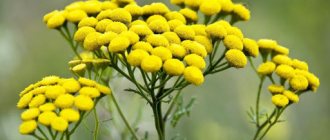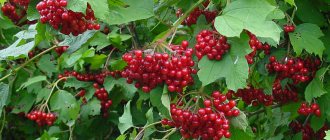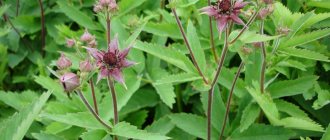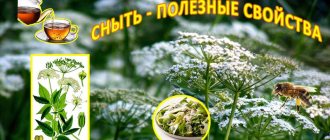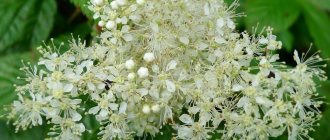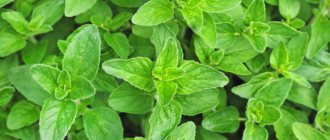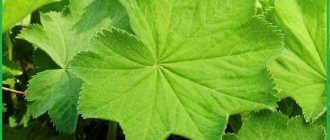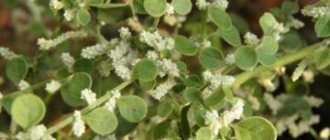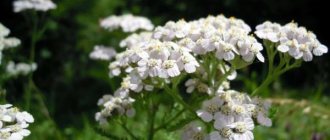Fennel (another name is fennel or sweet dill) is a perennial plant of the Umbellaceae, or celery family, up to two meters high. The plant has a spicy-sweet taste, very similar to dill, and smells like anise. Fennel fruits have not only unique taste qualities that allow them to be used in cooking, but also many healing properties.
An old English proverb says: “He who sees fennel and does not pick it is not a man, but a devil.”
Some fun facts
Fennel is currently cultivated all over the world, but its homeland is considered to be the Mediterranean and Asia.
In Russia, pharmaceutical dill grows in the Krasnodar region. Wild fennel is found everywhere in Crimea. It grows in ditches, near roads, on rocky slopes up to a height of two thousand meters.
Since ancient times, the plant has been used in medicine. Avicenna recommended fennel as an expectorant, Pliny and Dioscorides used it to treat eye diseases, Hippocrates considered fennel an excellent diuretic.
In ancient Rome and Greece, fennel was used to treat headaches and skin diseases.
In England in the Middle Ages, fennel was one of the nine sacred herbs. In the history of the British, the doctor Stephenson is known, who treated with a medicine based on fennel. It successfully helped with liver stones and kidney inflammation. The medicine has received wide acceptance. In 1739, the English Parliament paid Stephenson five thousand pounds sterling for publishing a recipe for a medicine.
In the USA, fennel is successfully used in the treatment of eye diseases, kidney inflammation and intestinal colic.
Where can I get the plant?
Instructions on how to grow
You can grow a green miracle both from seeds and by seedlings. Planting in the garden occurs in mid-spring - April.
Gardeners recommend planting fennel away from other plants: if the root crop does not have enough moisture, it will, with the help of long roots, begin to take it away from its neighbors in the garden.
Fruit harvesting occurs at the end of April - beginning of September. The grains do not ripen evenly. Initially, those in the center are harvested, then the rest of the crop.
Where to buy and how to choose?
You can buy fennel in stores, at pharmacies, or order online. The fruits are usually bright or light green in color. This is a sign of their freshness. In Moscow, the average cost of pharmaceutical dill seeds is 447 rubles/kg, in St. Petersburg – 435 rubles/kg.
Fennel in cooking
Fennel, whose taste and aroma resembles anise, has gained recognition among chefs all over the world. It is readily used in Indian, Chinese, European, and Caucasian dishes.
All parts of sweet dill are used in cooking. Young fennel feathers are added to pickles and marinades, used in sauerkraut, and added to hot main dishes. Raw onions are used in salads and stewed with pork. Seasonings made from fennel seeds add a piquant taste and aroma to soups, broths, minced vegetables and meats, and sauces. They are added to bread and confectionery, salads.
The use of fennel in fish dishes has received worldwide approval; it is used to impart a subtle aroma and taste to fish.
Fennel is one of the few herbs that goes great with cold meat and fish appetizers.
Very often, fennel is used in a mixture with other spices and herbs. It perfectly complements black pepper (ground), coriander, basil and marjoram.
Essential oil is produced from fennel fruits, which is successfully used in cooking, cosmetology and perfumery.
Energy value
The success of fennel lies not only in its original taste and aromatic qualities, but also in its energy and nutritional value.
The energy value of 100 grams of fresh herbs, bulbs and plant stems is only 31 kilocalories.
Composition of 100 grams of green part and onion:
- water - 90.2 g;
- fiber (dietary fiber) - 3.1 g;
- ash - 1 g;
- carbohydrates - 4.2 g;
- proteins - 1.2 g;
- fats - 0.2 g.
It should be noted that fennel seeds (fruits) have a fairly high calorie content. 100 grams of fruit contain 345 kilocalories.
Their nutritional composition:
- water - 8.81 g;
- fiber - 39.8 g;
- carbohydrates - 52.3 g;
- proteins - 15.8 g;
- fats - 14.9 g.
Fennel seasoning: contraindications for women and men
Fennel is a seasoning that undoubtedly has benefits for the human body. However, under a number of circumstances, it can be harmful from consumption or medical use.
Fennel is contraindicated:
- In case of individual intolerance to the product.
- For food allergies in the acute period, during the compensation period - with caution and under the supervision of a doctor.
- For heart rhythm disturbances and certain diseases of the heart and blood vessels.
- For acute diarrhea.
- With severe arterial hypotension.
Any chronic and acute diseases require careful attention to the formation of the diet. Before including fennel in your diet or using the product to obtain a therapeutic effect, it is important to consult a specialist.
Fennel: culinary uses
So much has been said about the use of this seasoning for medicinal purposes that it is worth paying attention to the use of the spice in cooking. It turns out that not everyone knows why and in what dishes to add fennel. And, by the way, this is a seasoning that can be used in completely different areas of culinary achievements.
Fennel is added to main courses, salads, marinades, dressings and soups. It adds a piquant note to warming and cooling drinks. This spice is interesting in combination with fruits and dried fruits. This component is not superfluous in some types of baked goods. This spice is added to jams, chutneys, marmalades, marshmallows and jams, and salad dressings and sauces will sparkle with new colors. In short, there is no limit to imagination in the direction of using fennel for culinary purposes. And, as a rule, the result pleases with a fresh, spicy note and a subtle peppery bitterness. Fennel combines in an original way with both sweet foods and basic everyday foods. In each type of dish, this seasoning reveals itself in its own way, highlighting the taste and aromatic characteristics of the combination.
Interestingly, the ancient Greeks considered fennel a magical plant and believed that it protected against evil spirits. This is such a multifaceted seasoning - fennel. If there are no contraindications, enjoy your meal and be healthy!
Beneficial features
Fennel has been used since ancient times as a remedy for various types of diseases. Currently, this plant has been studied quite well; its medicinal properties are confirmed by the composition of vitamins and microelements in all its parts.
Pharmaceutical dill contains:
- B vitamins (B1, B2, B3, B5, B6, B9);
- vitamin C;
- beta-carotene (provitamin A);
- trace elements (zinc, selenium, iron, copper, manganese);
- macroelements (potassium, magnesium, phosphorus, sodium, calcium).
Fennel has many medicinal properties. It is especially successfully used in the treatment of the gastrointestinal tract and alleviation of symptoms of diseases of the respiratory system.
Useful medicinal properties of fennel:
- helps normalize the gastrointestinal tract, helps with flatulence, and has a laxative effect;
- used as a mild diuretic;
- has an antitussive effect;
- relieves spasms, improves the functioning of the glands;
- has antimicrobial and antifungal properties;
- accelerates metabolism, cleanses the liver and the entire body;
- dulls the feeling of hunger.
This is not a complete list of painful conditions for which fennel and preparations containing it are useful.
By consuming fennel, you can strengthen the heart muscle, improve the condition of the nervous system, and cope with depression and insomnia. Herbalists believe that this plant is a good preventative against kidney and liver diseases, malignant tumors and other ailments.
A decoction containing fennel fruits is the safest remedy for intestinal colic in infants. Fennel fruit tea can be given not only to a baby, but also to a breastfeeding mother.
Application
The culture is used in traditional and folk medicine. Fennel is equally beneficial for adults and children . Decoctions from the fruits of Voloshsky dill are given even to infants and nursing women (read about the use of fennel for infants and older children here, and the beneficial properties of fennel and contraindications for women in general are written separately).
When consuming the fruit of pharmaceutical dill:
- the picture of the nervous system significantly improves;
- strengthens the heart muscles;
- useful for kidney and liver diseases;
- copes with respiratory diseases;
- for ARVI and influenza;
- stabilizes the menstrual cycle;
- improves lactation;
- eliminates colic in babies;
- has a diuretic effect;
- antispasmodic;
- choleretic effect;
- laxative effect;
- improves metabolism;
- has antiseptic properties.
Contraindications
Fennel, whose beneficial properties are obvious, has some contraindications. Doctors recommend using fennel fruits with caution in the following cases:
- for allergic manifestations;
- women who are pregnant;
- in acute heart failure;
- persons suffering from epilepsy;
- with severe intestinal upset.
Before taking fennel as a medicinal drug, you should consult your doctor. Especially if it concerns a small child. Fennel fruits contain essential oils with a strong estrogenic effect, which can harm the development of a child if fennel tea is given uncontrollably for a long time and often. Only a pediatrician can correctly assess the child’s condition and prescribe the drug in the right dosage.
Fennel, the beneficial properties and contraindications of which were discussed above, can be used in culinary dishes, or you can prepare simple healthy decoctions and teas from its fruits.
What diseases is fennel good for?
Stomach treatment
Tea with fennel seeds and herbs is especially good for cramps, pain, increased gas formation and flatulence, and colic. Infants are given so-called “dill water” (in fact, it is fennel water) when drinking gas, which causes discomfort in the baby and gives mothers a lot of anxiety. The motility of the stomach and intestines is improved in people of any age, and therefore the excretory processes too.
Disinfection of skin and mucous membranes
It is good to rinse your eyes with a decoction of the seeds if they are inflamed or simply red and feel dry. The same remedy effectively relieves the skin and mucous membranes of the mouth from pustular lesions and rashes.
Fennel seeds are also beneficial for the eyes because they contain retinol and beta-carotene, which strengthen the eye muscles and promote natural hydration of the eyeball.
Women Health
It is believed that consuming fennel decoction helps nursing mothers establish and improve lactation, the skin becomes lighter and cleaner due to the accelerated removal of toxins, and metabolism accelerates (after childbirth, it is important for many to quickly lose the weight gained during pregnancy).
Metabolism
It is useful to drink fennel tea in the heat: it perfectly quenches thirst and restores the water-salt balance of the body, and the intensity of sweating noticeably decreases naturally within half an hour after drinking the drink.
Wellness enthusiasts and those concerned with weight loss sometimes call fennel a natural magic wand. All parts of the plant help actively burn fat and quickly lose weight: the appetite with regular consumption of fennel is noticeably reduced, so you won’t have to suffer too much due to dietary restrictions.
Respiratory diseases
Fennel is famous for its excellent expectorant properties: it quickly thins mucus and removes it from the bronchi; even very severe and chronic types of cough can be treated with a decoction and syrup based on the plant.
Improving the condition of skin, hair and nails
Fennel decoction regulates the activity of the sebaceous glands well: if you wipe your facial skin with it, it will become drier and smoother, the tone will be restored, and acne will go away faster. By rubbing the product into the roots, dandruff and itching of the scalp go away, the hair stays clean longer and does not lose volume.
Tea for strengthening nerves
Fennel fruits, the use of which is described in the following recipe, help with insomnia and depression, strengthen the nervous system, speed up metabolism and help get rid of extra pounds.
To prepare healing tea you need:
- fennel fruits (seeds) - 20 grams,
- linden flowers - 10 grams,
- chamomile flowers - 10 grams,
- water - one liter.
Grind linden and chamomile flowers (you can take dried flowers). Pour water into a container and bring to a boil. Pour the flower mixture and fennel seeds into boiling water. Remove the container from the heat and leave the broth to steep for 20 minutes. Strain the resulting tea through a strainer or cheesecloth. Drink tea warm.
TO IMPROVE DIGESTION
Fennel is my favorite herb for treating a wide range of digestive issues. Do you feel nauseous after eating? Try fennel. Do you have digestive system spasms associated with diarrhea? Try fennel. Do you have gas and bloating? Fennel reduces flatulence. It is often added to herbal mixtures for people with irritable bowel syndrome because it can relieve both diarrhea and constipation. As an antispasmodic, fennel can relieve intestinal pain caused by cramps (including diarrhea or flatulence).
But don't wait for digestive discomfort to experience the benefits of fennel. Chew fennel seeds after meals to help support good digestion and leave your mouth feeling fresh.
A decoction to improve the functioning of the gastrointestinal tract
Fennel decoction normalizes the functioning of the gastrointestinal tract, and also helps treat the pancreas and liver.
To prepare the decoction you will need:
- fennel (seeds) - 25 grams,
- purified water - 550 milliliters.
Grind the fennel seeds (fruits) into powder using a coffee grinder or mortar. Bring the water to a boil. Pour boiling water into the crushed seeds. Leave the prepared broth to steep for one hour. Divide the drink into ten parts. Store the broth in the refrigerator. Take in equal parts.
How to store?
Whole fruits should be stored in a cool place for no more than six months. It is best to store crushed fennel seeds in the refrigerator .
The fruits of pharmaceutical dill are a golden fund of useful substances available to everyone. The plant can be grown independently or purchased commercially. Do not forget to follow the proportions when preparing a decoction or tea, and monitor the safety of the product. Fennel is your faithful ally in the fight against various diseases. It is also a tasty addition to many dishes.
Read on our website about fennel seasoning, its properties, storage nuances and rules of use, as well as the use of the plant root in cooking and medicine.
Fennel tea for babies and mothers (simple recipe)
How to brew fennel seeds for nursing mothers and babies?
To prepare a simple healing tea you should take:
- fennel (seeds) - 2 teaspoons;
- water - 500 milliliters.
Pour boiling water over fennel seeds. Leave to infuse for 30 minutes. Strain. Fennel seeds can be pre-ground into powder (in a coffee grinder or mortar). In this case, you need to steep the tea not for 30 minutes, but only for 15 minutes. The tea will be more concentrated. A nursing mother can drink the resulting tea one cup three times a day. The baby can be given the drink 0.5 or 1 teaspoon three times a day.
Tea for babies made from a mixture of fennel, anise and dill
To prepare a more effective healing drink for babies and nursing mothers, anise, dill and fennel are used. The benefits and harms of each component should be taken into account by the mother before giving the drink to the baby.
Required components:
- fennel (seeds) - 1 teaspoon,
- dill (seeds) - 1 teaspoon,
- anise (seeds) - 1 teaspoon,
- water - 700 milliliters.
Mix fennel, dill and anise seeds and grind into powder using a mortar or coffee grinder. Boil water. Pour boiling water over the seed mixture. Let the drink brew for 10 minutes with the lid closed. Strain. Tea prepared in this way is given to a newborn baby 0.5 or 1 teaspoon every 30 minutes until the condition is relieved. For children aged one year and older, give two or three teaspoons every 30 minutes until the condition improves.
BAKED ROOT VEGETABLES WITH FENNEL
This simple recipe is one of our family's favorites. My husband and I do our best to eat locally grown vegetables year-round, so we buy large quantities of root vegetables like beets and carrots in the fall and store them in our basement to enjoy during the snowy winter months. The sweetness of these vegetables is enhanced by the aroma and flavor of fennel.
We love this dish drizzled with a good quality or aged balsamic vinegar. You can peel carrots and beets if you want, but we never do that. Roasted garlic with its skin is sweet and tender, just be sure to remove it before eating.
INGREDIENTS:
4 cups beets, cut into 2.5 cm cubes
4 cups carrots, halved (2.5 cm in size)
1 head of garlic, divided into peeled cloves
1 teaspoon (2 g) fennel seeds
1/4 teaspoon pepper
1/2 teaspoon salt
1/4 cup olive oil
2 tbsp. spoons of balsamic vinegar
COOKING METHOD:
1. Preheat the oven to 175–180°C. Combine all ingredients (except balsamic vinegar) in a large baking dish, pour in olive oil, salt and pepper and mix well.
2. Place the pan with the vegetables in the oven and bake for 60 minutes or until the vegetables are tender. Stir the vegetables every 20 minutes while roasting.
3. Remove the vegetables from the oven and pour over the balsamic vinegar and stir.
4. Serve the baked root vegetables warm. Leftovers should be consumed within 3 days.
Slimming Tea
Fennel seeds are used to prepare an infusion that helps speed up metabolism and reduce weight.
To prepare the product you need:
- fennel seeds - four tablespoons,
- water - two liters of water.
The infusion can be prepared in two ways.
First method: boil water, pour in fennel seeds, remove from heat, cool under closed lid.
Second method: pour fennel seeds with cold boiled water, close the lid, and leave to steep for 12 hours.
Drink one cup of infusion a day, gradually increasing the amount of healing liquid you drink to one liter. You should carefully analyze the body's reaction to fennel in order to prevent unwanted manifestations of allergies.
